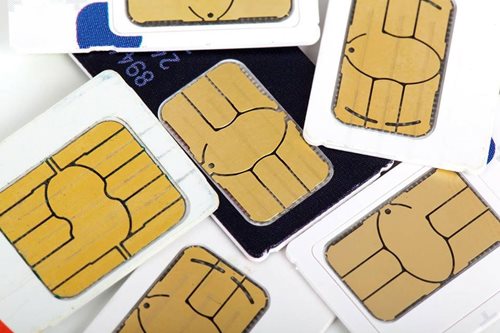According to the congressional fact sheet prepared by the sponsoring panel, the Committee on Information and Communications Technology, the bill establishes a system of sale and registration of SIM card for all users.
It also mandates all Public Telecommunications Entities (PTEs) to submit a verified list of their authorized dealers and agents nationwide to the National Telecommunications Commission (NTC). They will be made to submit an updated list every quarter of each year.
Under the bill, all PTEs must maintain a SIM Card Register of their subscribers containing information required.
There is a provision on confidentiality and non-disclosure of information, prohibiting release of a subscriber's information unless upon subpoena or lawful order from a court or written request from law enforcement agency in relation to an ongoing investigation that a particular number requested is used in the commission of a crime, the fact sheet said.
The confidentiality clause in the SIM card registration takes effect at the point of sale, it added.
Existing pre-paid SIM card phone subscribers must also be registered once the measure takes effect. Those who fail to register within the prescribed period face automatic deactivation.
According to the fact sheet, the bill seeks to promote end-user accountability, prevent the proliferation of mobile phone scams and data breaches and assist law enforcement agencies in resolving crimes involving the use of mobile phone units.
PROPOSED PENALTIES
PTE's who violate the proposed law face the following penalties:
- 1st Offense - fine of P300,000.00
- 2nd Offense - fine of P500,000.00
- 3rd and subsequent offenses - fine of P1,000,000
Direct sellers who also violate risk a penalty of suspension of operation and a fine ranging from P5,000 to P50,000.
Officers or employees of an implementing agency also face a penalty of suspension or dismissal from service and a fine to be determined by the court without prejudice to the filing of an appropriate criminal, civil and administrative cases for violations.
OPPOSITION
House Deputy Minority Leader France Castro was among those who voted against the bill, even despite the prevalence of text scams.
"Huwag nating gamiting pretext o pagdadahilan ang text scams at phishing na bumibiktima sa mamamayan upang lalo pang biktimahin ang mamamayan," Castro said during the plenary session.
"May sapat na mga mandato ang mga ahensyang gaya ng NTC upang sawatahin ang mga ito at panagutin ang mga may sala—mga mandatong dapat ay ginagawa nila sa pinakakagyat na panahon at pinaka-decisive na paraan," she added.
Castro said the government has not even addressed the matter of data breaches as she warned of possible abuses.
"Hanggang ngayon, paparami nang paparami ang mga insidente ng disimpormasyon, harassment, at trolling na bumibiktima sa miyembro ng oposisyon, mga progresibo, at kahit mga ordinaryong mamamayang nagpapahayag lamang ng kanilang saloobin," she said.
Gabriela Rep. Arlene Brosas said that the bill puts forward a "lopsided presumption" that all Filipinos are considered as potential criminals and evading the law unless registered as SIM card holders.
"It gives a false assurance that once all SIM cards are registered, purveyors of spam messages and trolls will be flagged – when in reality, these crimes and acts will not come to a halt," she said.
Brosas also fears that requiring the presentation of a valid ID or a birth certificate issued by the Philippine Statistics Authority may lead to discrimination against indigenous peoples.
Kabataan Rep. Raoul Manuel believes the bill is a step in the wrong direction.
"This is not a proactive step, but a step backward. Addressing cybercrime should not come at the expense of democratic rights. We must focus on policies regarding data protection and privacy while devising new strategies against cybercrime. The youth will not support this measure," he said.
The bill will be submitted to the Senate for its action.
The public has been reporting an increase in SMS-based scams or smishing, especially during the pandemic, when digital adoption also accelerated.
Earlier investigations by the NTC showed that some of these spamming practices could be part of a global organized syndicate.
Full story here: https://tinylinkurl.com/cOiEr







Comments
Authentication required
You must log in to post a comment.
Log in